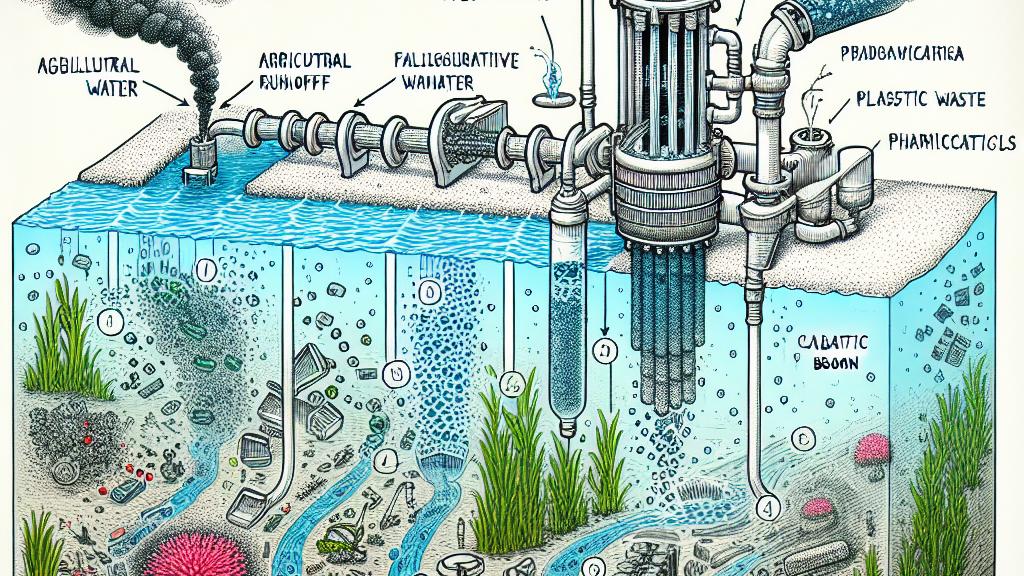New Technology to Clean Polluted Water Using Tiny Traps
Overview
- Revolutionary molecular traps from the University of Manchester offer a powerful solution for capturing water pollutants.
- These advanced metal-organic cages (MOCs) effectively bind toxic substances, providing hope for cleaner water.
- This innovation represents a critical advancement in the fight against rising global water pollution.

The Gravity of Water Pollution
Water pollution is an urgent crisis that endangers both ecosystems and human health across the globe. Every day, staggering quantities of pollutants—such as heavy metals, plastic waste, and pharmaceuticals—find their way into rivers and oceans. For instance, agricultural runoff laden with fertilizers not only poisons aquatic environments but also contributes to algal blooms, which can deplete oxygen and lead to fish kills. Furthermore, according to the World Health Organization, around 2 billion people lack access to safe drinking water, underscoring the dire need for effective solutions to this escalating threat.
Unveiling the Game-Changer: Molecular Traps
Amidst this troubling backdrop, scientists at the University of Manchester have pioneered an exciting technology known as molecular traps, or metal-organic cages (MOCs). These ingeniously crafted structures are designed to function like super-efficient sponges, capturing harmful pollutants from water. Picture these MOCs as tiny, pyramid-like cages composed of metal ions linked by organic molecules. Their true genius lies in a process called hydrophobic binding, which attracts toxic substances and holds them securely within the cage's interior. This capability allows MOCs to tackle troublesome pollutants—like leftover medicines and personal care products—that often resist traditional purification methods.
Why This Innovation Is So Important
The implications of this breakthrough are profound and far-reaching. With pollution levels rising dramatically, the introduction of MOCs could transform water treatment practices, particularly in urban areas where wastewater is a constant concern. Imagine cities utilizing this technology to cleanse rivers and lakes, restoring these vital ecosystems and ensuring clean drinking water for their residents. By effectively targeting and binding stubborn pollutants, MOCs not only safeguard environmental health but also protect the livelihoods of communities that rely on these water sources. This could be a pivotal moment in our approach to environmental sustainability!
What's Next? The Future of MOCs in Water Treatment
Looking ahead, the future of molecular traps appears incredibly promising. Researchers are enthusiastic about refining these water-soluble cages to capture an even broader range of contaminants. The potential applications are exciting! In addition to enhancing wastewater treatment, MOCs could also be utilized in agriculture to make irrigation safer and more efficient, minimizing harmful runoff that affects waterways. As these innovative technologies evolve, they hold the key to a cleaner, healthier world. Their impact could ripple through various sectors, promoting sustainability and better management of our precious water resources. Ultimately, this is more than science; it's a crucial step toward ensuring a cleaner, better future for all.

Loading...